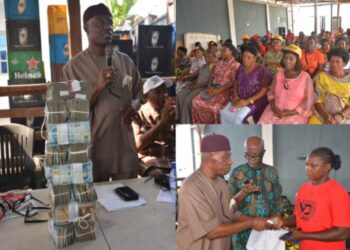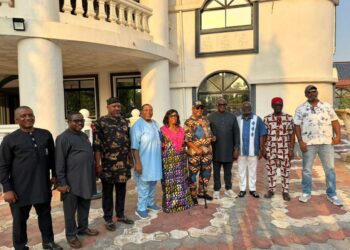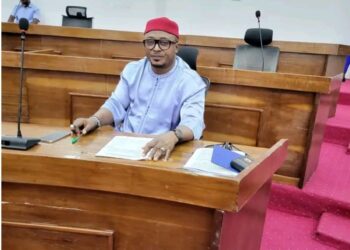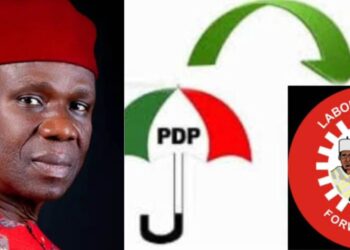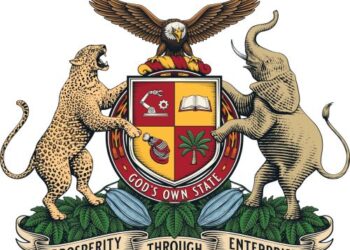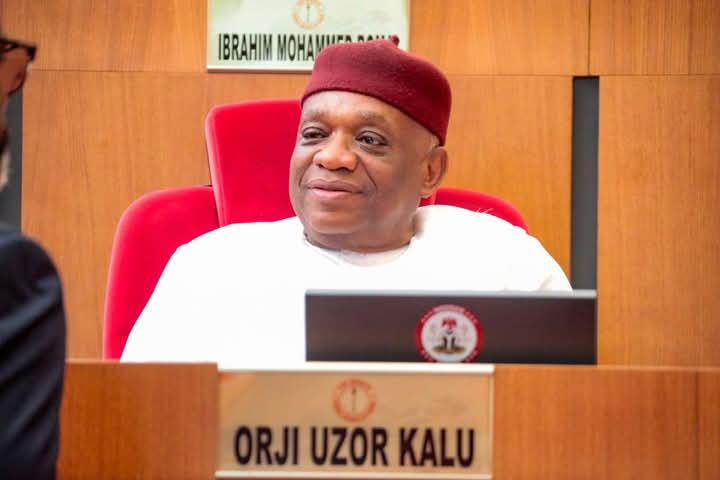CEHRAWS has received and reviewed near credible information, first publicly amplified by Chief John Okiyi Kalu, alleging that Governor Alex Otti, in concert with two unnamed legislative officials, engineered a covert ten-fold increase in the Executive approval limit from ₦50,000,000 (Fifty Million Naira) to ₦500,000,000 (Five Hundred Million Naira) without prior public notice, legislative plenary debate or transparent executive council consideration.
This alleged change, if true, is a brazen assault on statutory due process, the rule of law and the fiscal rights of Abians.
CEHRAWS condemns in the strongest possible terms any attempt to dilute the checks and balances that protect Abia citizens from arbitrary and corrupt public spending.
Due process in procurement and expenditure is not a bureaucratic nicety; it is the legal and constitutional safeguard that prevents coup-by-contract: the stealthy transfer of public wealth into private pockets under the cover of executive fiat.
The Abia State Public Procurement Law (Law No. 5 of 2012) expressly provides that procurement above certain thresholds must pass appropriate tender boards and, where required, the State Executive Council, and that approving authorities are to be fixed, transparent and subject to oversight. Any unilateral or secret alteration that removes that scrutiny undermines the statute’s object and public interest.
Legal Basis For Our Alarm
1. Abia State Public Procurement Law (2012): Establishes the State Council of Public Procurement, ministerial and parastatal tender boards, and requires that procurements above specified thresholds be escalated for proper review and approval by the State Executive Council.
Authorising, aggregating or splitting procurements to avoid thresholds is prohibited in order to ensure transparency and value for money.
2. Public Procurement Act (2007): The national framework that harmonises procurement rules and criminalises procurement offences; the Act demands competitive, transparent and accountable procurement practice and creates enforcement obligations for regulatory bodies. Changes to approval thresholds that circumvent the Act’s spirit or local implementing regulations raise serious legal questions.
3. Corrupt Practices and Other Related Offences Act / ICPC mandate: The Corrupt Practices Act creates offences and penalties for public officers who use their position to confer unfair advantage on themselves, associates or cronies; it also mandates investigation and possible prosecution where a public officer’s conduct amounts to gratification, abuse of office or corrupt preference.
If approval limits were secretly raised to facilitate payments to connected persons, those acts may attract investigation under this law.
4. Recent regulatory context (BPP revised thresholds, May 2025): The Bureau of Public Procurement (BPP) announced revised, national thresholds in 2025 to reflect economic reality and to preserve oversight while streamlining procurement.
Any state action that purports to increase executive spending powers without public process must be tested against both the BPP guidelines and existing state law to avoid conflict and legal nullity.
What CEHRAWS Finds Particularly Troubling
• Secrecy and procedural irregularity. The reported increase was not the subject of an open legislative plenary or recorded executive council deliberation made available to the public. Public finance decisions of this magnitude must not be by stealth. The alleged procedure or agreement between the Governor and a few legislative officials outside recorded processes, would violate the principles of transparency enshrined in procurement law and democratic accountability.
• High risk of patronage and contract-splitting. A jump from ₦50m to ₦500m concentrates discretion and creates enormous temptation for patronage, conflict of interest and the use of contracts to reward cronies. Past controversies in Abia (including widely reported payments and negotiation fees in large contracts) demonstrate why robust, visible thresholds matter.
• Potential criminal and administrative liability. Officials who conspire to subvert procurement rules may expose themselves to administrative sanctions, reversal of illicit transactions, asset recovery actions and criminal prosecution under the Corrupt Practices Act and procurement offences in the Public Procurement Act.
Our Demands
1. Immediate public disclosure: The Governor and the Abia State House of Assembly must immediately refute this weighty allegation and also publish, in full, all relevant documents to buttress their stand or proceed to publish in full any instrument, resolution or administrative directive that purportedly amended the Governor’s approval threshold, including the date of effect, the legal basis cited and the names of all signatories.
Absence of such a document will confirm the worst fears of secret law-making.
2. Public forensic audit: We demand an urgent, independent forensic audit of all contracts and payments above ₦50m executed since the start of this administration. The audit should be published in full and made available to civil society and the public. CEHRAWS will support and participate in any such audit process.
3. Legislative investigation and public hearing: The House of Assembly should, in plenary and in public, investigate how any threshold change was approved, summon the Governor’s aides and the implicated legislative officers, and publish the findings. Any resolution purportedly passed behind closed doors must be declared null and void if it violated statutory process.
4. Referral to anti-corruption agencies: Where evidence of abuse or collusion emerges, the matter must be referred to the Independent Corrupt Practices Commission (ICPC) and any other competent prosecutorial authority for investigation and, where warranted, prosecution.
5. Protection for whistleblowers and civil servants: Abia civil servants and whistleblowers who expose impropriety must be protected under relevant whistleblower protections and must not be victimised for exposing financial wrongs.
Power concentrated without scrutiny becomes theft by decree. The people of Abia, including those who currently applaud any single disbursal, are the true injured parties when procurement rules and legislative safeguards are eroded.
We know the facts given to us raise a high risk of rapid, large-scale misappropriation: an approval ceiling of ₦500m in the hands of an unchecked few is a structural invitation to patronage and corruption. The purpose of approval limits and tender boards is to protect the public purse; their circumvention must not stand.
CEHRAWS will not be silent. We will:
- • Publish the identities of officials implicated if credible documentary evidence surfaces;
- • Explore all legal approach to engage the governor and implicated officials, and may further initiate a public interest litigation, and injunctions where necessary; and
- • Collaborate with media and anti-corruption agencies to ensure transparency and accountability.
Signed:
Okoye, Chuka Peter
Executive Director, CEHRAWS
Email: cehraws@gmail.com | Phone: +234(0)808-035-1242 (WhatsApp).
MOTTO: …homini Serviemus!
Location: Aba, Abia State.
For Press Release, Tip-off, Sponsored Post Contact Us: Whatsapp: (234)7038111972 | Email: info@abacitybloq.com



